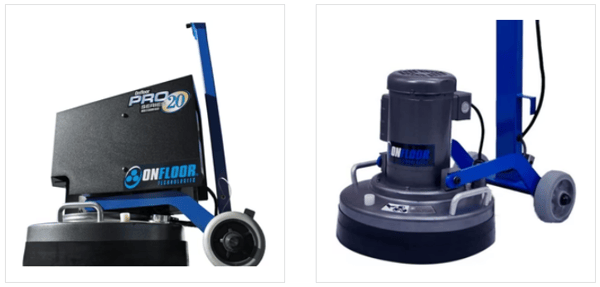Top 10 Questions to Ask Your Concrete Contractor
Finding the right concrete contractor for your concrete construction project is crucial for any construction endeavor. Whether you’re a property manager overseeing a large commercial site, a construction professional looking to ensure quality, or a homeowner eager to make home improvements, choosing the right contractor can save time, money, and headaches.
To help you make informed decisions, we’ve compiled a list of the top 10 questions to ask your concrete contractor. By arming yourself with the right questions, you’ll be better positioned to hire a contractor who meets your specific needs and expectations.
1. Understanding Their Experience and Credentials
When selecting a concrete contractor, understanding their experience and credentials is essential. Start by asking about their years in the business and their background in the concrete industry.
Contractors with extensive experience are generally more familiar with potential challenges and know how to handle unexpected situations. These are the guys who will bring valuable insights that can often lead to better outcomes for your project- a must-have.
It’s also important to inquire about their certifications and licenses. A reputable contractor should not only have the necessary licenses but also be willing to showcase them. These credentials confirm that they are qualified and comply with local building regulations. (Tip! Verifying this information helps ensure that you are working with a professional who adheres to industry standards).
Additionally, ask about their areas of specialization. Some contractors focus on specific types of projects, such as residential driveways, commercial foundations, or decorative concrete overlays. Knowing their expertise can help you determine if they’re the right fit for your specific project needs.

2. Permitting and Insurance
Ensuring Legal Compliance and Coverage
When hiring a concrete contractor, it’s essential to ensure they have the necessary permits and insurance to operate legally and protect you and your property.
A reputable concrete contractor should have the following:
- A valid contractor’s license issued by the state or local government. This license confirms that the contractor has met the required standards and regulations to perform concrete work.
- Liability insurance to cover any damages to your property or injuries to workers. This insurance protects you from potential financial losses if an accident occurs on your property.
- Worker’s compensation insurance to cover injuries to workers. This ensures that workers are protected and that you are not held liable for any on-site injuries.
- Bonding to ensure the contractor completes the project as agreed upon. A bonded contractor provides a financial guarantee that the project will be completed to your satisfaction.
You can verify a contractor’s licenses and insurance by:
- Checking with the state or local government’s licensing board. This can often be done online and officially confirms the contractor’s credentials.
- Contacting the contractor’s insurance provider. This step ensures that the insurance policies are current and valid.
- Asking for proof of insurance and permits. A reputable concrete contractor will readily provide this documentation.
Here’s why this matters…having an insured concrete contractor ensures that you’re protected in case of accidents or disputes. It also gives you peace of mind knowing that the contractor has the necessary qualifications and expertise to complete your project.
3. Examining Previous Projects and Client References
Examining a contractor’s previous projects and client references provides a window into their capabilities and reliability. This allows you to assess the quality and style of their completed projects.
If we can leave you with one golden nugget, it’s this: visual evidence of their work can be very telling about their level of craftsmanship… the proof is in the pudding.
Don’t hesitate to ask for references from past clients. Speaking directly with previous customers offers insights into their experiences with the contractor. When doing this inquire about the contractor’s professionalism, punctuality, and how well they communicated throughout the project. Satisfied clients are often willing to share their positive experiences, which can reinforce your confidence in the contractor.
And unsatisfied clients? You’ll know right away.
Additionally, consider looking up online reviews and ratings. Websites such as Yelp, Google Reviews, and industry-specific forums can offer further feedback from other customers. Evaluating both positive and negative reviews can provide a balanced view of what to expect.
4. Discussing Project Timelines and Availability
Time is often of the essence in construction projects, making it vital to discuss timelines and availability with your contractor. Begin by asking about their current workload and availability. This will help you determine how soon they can start your project and if they can dedicate adequate time to it.
Understand their estimated timelines for completing your project. A reliable contractor should provide a timeline that covers each phase of the work. Having a clear schedule helps you plan other aspects of your project and sets expectations for both parties. Even for small concrete projects like driveways, which typically take 2-3 days, careful planning and execution are essential to ensure quality outcomes.
Also, ask about their flexibility regarding deadlines. Construction projects can sometimes face unforeseen delays due to weather conditions or supply chain issues. Knowing how your contractor handles such situations and their ability to adjust timelines when necessary helps maintain project momentum.
5. Clarifying Costs and Payment Schedules
Before committing to a contractor, it’s crucial to have a clear understanding of costs and payment schedules. Ask for a detailed estimate that includes all costs associated with your project. This estimate should cover materials, labor, and any potential additional charges. A transparent breakdown allows you to budget accurately and avoid unexpected expenses.
It’s also wise to discuss the payment schedule. Find out whether the contractor requires a deposit, and clarify when subsequent payments are due. Understanding the payment structure helps manage cash flow and ensures transparency in your financial dealings.
Additionally, ensure that the contractor has made arrangements to pay all suppliers to avoid issues with an unpaid concrete producer, which could result in a lien on your property. Furthermore, inquire about any potential hidden fees. Some contractors might charge extra for unforeseen challenges or changes in project scope. Establishing clarity on these aspects upfront prevents misunderstandings and aligns expectations for both parties.
6. Ensuring Quality of Materials and Techniques in Concrete Work
Quality materials and techniques are the cornerstones of any successful concrete project. With that being said- be sure to inquire about the types of materials the contractor plans to use!
Here’s the thing: high-quality concrete and reinforcements can significantly impact the durability and appearance of your project. For a more detailed answer, you can also ask why they prefer certain brands or suppliers and ensure these materials meet your standards.
It's also crucial to consider the warranties contractors provide on their concrete installations. A solid warranty serves as an assurance of quality workmanship, so carefully examine the warranty details.
It’s beneficial to understand the techniques they use for different aspects of your project. For instance, pouring methods and finishing techniques can vary. Discussing these details helps ensure that the contractor’s methods align with your expectations for durability and aesthetics.
Additionally, ask about their quality assurance measures. Reputable contractors typically have protocols in place to monitor and maintain quality throughout the project. Understanding these measures gives you confidence in their commitment to delivering high-caliber work.
7. Assessing Communication and Project Management Style
Effective communication is crucial for a smooth construction project, especially when working with concrete contractors. Assess the contractor’s communication style by asking about their preferred methods of contact and frequency of updates. Regular updates allow you to stay informed about progress and address any issues promptly.
Understanding their project management style is equally important. Inquire about how they coordinate with their team and manage subcontractors. A well-organized approach ensures that the project stays on track and that tasks are completed efficiently.
Finally, discuss how they handle project changes or challenges. Construction projects can sometimes require adjustments due to unforeseen circumstances. Knowing how your contractor approaches problem-solving and adapts to changes will give you insight into their flexibility and dedication to client satisfaction.
8. Investigating Safety Practices and Liability Insurance Coverage
Safety is paramount on any construction site. Investigate the contractor’s safety practices by asking about their protocols for ensuring worker and site safety. Adherence to safety standards minimizes risks and protects everyone involved.
Understanding the permitting process is crucial. Ensure the contractor knows the specific permits required for your project to comply with local ordinances.
Confirming insurance coverage is also essential. Request proof of liability insurance and workers’ compensation coverage. This protects you from potential liabilities in case of accidents or damages during the project.
Additionally, inquire about their approach to environmental considerations. Responsible contractors prioritize sustainability and environmental impact. Understanding their practices in waste management and material sourcing can reflect their commitment to eco-friendly construction.
9. Understanding Warranty and Post-Project Support
Understanding the warranty and post-project support offered by your contractor is crucial for long-term satisfaction. Ask about the warranty terms for both materials and workmanship. A comprehensive warranty reflects the contractor’s confidence in their work and provides peace of mind. Additionally, inquire about the warranty specifics for installations like a concrete slab, as understanding these details is essential for ensuring the durability and performance of the finished surface.
Discuss their approach to post-project support. Determine if they offer follow-up visits or maintenance services. This commitment to ongoing support can be valuable, especially if issues arise after the project is completed.
Lastly, ask how they handle any disputes or concerns. A professional contractor should have a clear process for addressing client concerns and resolving issues amicably. Knowing their approach to conflict resolution helps establish a positive working relationship.
10. Equipment Quality and Availability
The quality and availability of equipment are essential factors to consider when choosing a contractor. Inquire about the types of equipment they use and their maintenance procedures. Well-maintained tools and machinery ensure efficiency and minimize the risk of unexpected delays.
Additionally, it is important to find local concrete contractors who have relevant experience for your specific project. Checking reviews on online directories and asking for recommendations can help you effectively vet these contractors for your particular needs.
Also, discuss their approach to equipment availability. Construction projects require proper planning and coordination, so it’s crucial to have access to necessary equipment when needed. Understanding how your contractor manages equipment helps avoid potential delays or disruptions.

A Green Flag: Onfloor Concrete Grinders and Polishers
One reliable indicator of a contractor's commitment to quality and efficiency is their equipment selection. A contractor who invests in top-of-the-line tools and machines demonstrates their dedication to delivering exceptional results.
Onfloor concrete grinders and polishers are examples of high-quality equipment that can significantly impact the outcome of your project. Our versatile machines offer superior performance for grinding, polishing, edging, and more.
Investing in these advanced tools like Onfloor showcases a contractor's professionalism and expertise, giving you confidence in their ability to deliver top-notch results. So, when discussing equipment with potential contractors, be sure to inquire about their use of Onfloor grinders and polishers.
Here are some benefits of Onfloor grinders for homeowners:
- Because Onfloor grinders have quick change toolings, they can handle many applications in one. This allows your contractor to save money and, therefore, lowers the cost for you without sacrificing quality.
- Onfloor grinders minimize dust and debris, making them safer and more environmentally friendly than traditional concrete grinding methods.
- They are also user-friendly, requiring minimal training for operators. This helps ensure that your project is completed efficiently and effectively.
Quick Tips for Working with a Concrete Contractor
Building a Strong Contractor-Client Relationship
Working with a concrete contractor requires effective communication and a clear understanding of the project’s scope, timeline, and budget. To build a strong contractor-client relationship:
- Communicate your project’s requirements and expectations. Detailed discussions about your vision and needs help ensure that the contractor understands your goals.
- Ask questions and seek clarification on any concerns or doubts. Don’t hesitate to ask a concrete contractor about any aspect of the project that is unclear to you.
- Establish a clear payment schedule and terms. Agreeing on a payment plan upfront helps avoid misunderstandings and ensures financial transparency.
- Set realistic expectations for the project’s timeline and completion date. Understanding the project’s duration helps in planning and reduces the likelihood of delays.
- Regularly inspect the work in progress and report any issues or concerns. Ongoing communication and inspections help catch potential problems early.
A reputable concrete contractor will:
- Listen to your concerns and address them promptly. Open communication is key to a successful project.
- Provide regular updates on the project’s progress. Keeping you informed helps build trust and ensures that the project stays on track.
- Be transparent about the project’s costs and timeline. Clear and honest communication about costs and schedules prevents surprises.
- Offer suggestions and recommendations to improve the project’s outcome. Experienced contractors can provide valuable insights to enhance your project.
- Ensure that the project meets or exceeds your expectations. A commitment to quality and client satisfaction is a hallmark of reputable contractors.
By building a strong contractor-client relationship, you can ensure that your concrete project is completed to your satisfaction and that you have a positive experience working with the contractor.
All in All
Choosing the right concrete contractor involves more than just comparing prices; it requires evaluating their ability to handle various concrete projects. By asking the right questions, you gain valuable insights into their experience, reliability, and suitability for your project. Remember to verify their credentials, examine past work, discuss timelines and costs, ensure quality practices, and assess communication and safety protocols.
With this comprehensive approach, you’ll be well-equipped to make an informed decision that sets your project up for success. If you’re ready to start your next concrete project, use these questions as a guide to find a contractor who aligns with your vision and expectations.





0 comments